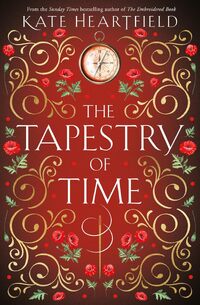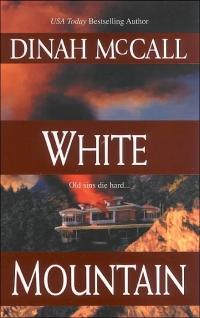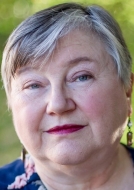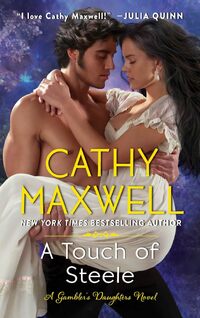 THE TAPESTRY OF TIME |
 Sunshine, secrets, and swoon-worthy stories—June's featured reads are your perfect summer escape. |

Purchase
Harlequin Romance Contemporary, Romance Suspense Excerpt of White Mountain by Dinah McCallFrank Walton was dying. He had suspected it for some time, but only last month his suspicions had been confirmed. And while he would have preferred to stay on this earth longer, he had accepted his fate just as he'd faced and dealt with every other adversity that had been thrust at him. Deal with it, then get past it. That was his motto, or at least it had been until now. He would deal with his upcoming demise later. For now, upper-most in his mind had been the need to go home — to go back to the place of his birth and see the people and hear the language and the music. Just once. Before it was too late. Only he couldn't. To them, he was already dead. Still, he'd had to know if what he'd done had been worth it. He'd needed to look at it again with a fresh view. Maybe then he would know if it had all been worthwhile. But to do that, he'd had to leave Montana for the state of New York, then head to Brooklyn and Brighton Beach. It was as close as he could possibly come to his homeland — to eat the food of his childhood and hear the language of the place he'd called home. Now, after two weeks in Brighton Beach, he'd come to a grudging acceptance that it was too late to turn back time. He exited the small café with a smile on his lips. The warm, dark-red borscht and savory bread he'd just had for his lunch had reminded him of the meals his mother had served during the short winter days and long cold nights in his Russian homeland. The food had been sparse but the love within his household overflowing. Even though the September day was almost balmy, he knew if he would but close his eyes, he could recall every nuance of that time: his father sitting near the fireplace with his musette, smoking cigarettes that he'd rolled on his own and sipping vodka between songs, he and his brothers and sisters dancing wildly, mimicking the high kicks of a Cossack dance while his mother's laughter rang out above the din. Ah, God. He'd given it up — all of it — and for a higher cause. At least that was what he'd told himself for the past thirty-odd years. But now that he'd come to the end of his days, he was starting to question whether the sacrifices had been worth it. What had he accomplished? What had any of them accomplished? A trio of gulls squawked noisily as they circled overhead, breaking Frank's concentration. Squinting against the afternoon sun, he tilted his head, anxious not to miss their feats of derring-do as they dive-bombed the beach beyond the boardwalk. One did not see seagulls in Montana. The sun was warm against his balding head. He inhaled briefly, then exhaled on a sigh, for the first time in his life, wishing he believed in a power higher than that of mortal man. Sunshine could not reach where he was bound. A woman leaned out from a third-story window and yelled down into the street. A man just coming out of the building paused and looked up, then called back to her, their voices mingling with the sounds of traffic and people and the noise of the day. Steam from beneath the streets rose upward from the sidewalk grates, blending with the guttural mingling of vowels and consonants that made up the Russian language. It was all music to Frank Walton's ears. He wanted to shout back — to sing the songs of his youth and dance until there was no more breath in his body. But he'd given up that part of his life too long ago. Not even now — when he was so close to his deathbed — could he take the chance and reveal his true self. So he thrust his hands in his pockets and moved on down the street, satisfied for the moment just to be in this place. Vasili Rostov cursed the ache in his knee as he stepped into an alcove away from the wind to light a cigarette. When the end caught and the tobacco began to burn, he took a deep drag and then held it, waiting for the nicotine to kick in. It came quickly, wrapping around his senses and easing the tension in his mind. He exhaled slowly, letting the smoke out through his nose as he turned. The old man he'd been trailing was still in sight. So he took another drag from the cigarette before he began to move, always staying at least a block behind. As he walked, his gaze moved from window to window, eying the opulence and abundance of that which was America. Not for the first time, he thought of staying. After the job was finished, of course. He loved his homeland, but the constant chaos in the government was disgusting to him — not like the old days. Then he'd been one of the youngest and best of Russia's finest agents, revered in higher circles, and proud of his KGB status and the strength in his body. Women had fawned over him. Other agents had envied him. His superiors had depended on him. Now he did nothing. They called it retirement. For Rostov, it was like being sent to an early grave. Even though he was in his mid-sixties, he was still strong. His belly was hard and flat, and the years had added character to his face rather than age. Ironically, it wasn't age that had sidelined him. It was his inability to keep up with the ever-changing modes of technology. These days, a good portion of the spy game depended upon understanding everything from lasers to computer chips, which left him out of the running. So his days were spent in taverns, reliving the past with others of his ilk, and the nights in his one-room flat, watching government-run television programs on a twelve-inch black- and-white set with the scent of a neighbor's boiling cabbage and potatoes drifting in from the crack beneath his front door. Communism had been good to him and his family. It had made his country strong. With the coming of democracy, his world had crumbled as surely as the Berlin Wall. For several years afterward, people had stood in the streets selling personal belongings just to keep from starving. Homelessness had become rampant, and the long lines at bread bakeries and supermarkets were made even more tragic by the fact that there had been little food available to buy for those who still had money. Now things were better, but they would never be the same. Democracy was as obscene to him as a four-letter word, and now the Russian Mafia had more power than the government, He'd learned to adjust, because it was what he did best. He'd settled into a routine that, while less than stimulating, was more luxurious than what he'd known as a child. And then a week ago there had come a knock at his door. He'd opened it to find four dour-looking men who'd told him to pack a suitcase. Within hours, he'd been briefed, given American money and a cell phone, and put on a plane bound for New York City. The reason was almost comical to Rostov. He was back in action for the simple reason that he was part of the past, He'd come to America for one reason only. To find a ghost. Now, here he was, tailing a stoop-shouldered old man with a fondness for borscht. He didn't look like a ghost to Rostov, but from the color of his complexion, he wasn't far from becoming one. When the old man stopped at a crosswalk, Rostov paused, too, turning toward the windows of the jewelry shop by which he was standing. To the passersby, it would appear that his interest was on the display of rubies and pearls, but in truth, the window was his mirror to the sidewalk across the street. He stood until the light turned green and the Walk sign began to flash, then he pivoted quickly. Dodging traffic, he bolted across the street, losing himself in the stream of pedestrians through which the old man was moving. He knew the man's name was Frank Walton. Supposedly a retired botanist from Braden, Montana, who had come to Brighton Beach for a holiday. But there was a particular reason why Vasili Rostov had been yanked out of retirement and sent on this mission, and the picture in his pocket was part of the mystery, Tonight he would meet this old man face-to-face. If what Rostov suspected was true, his name would once again be spoken with respect. Frank laid his safety razor by the sink and then peered at his face in the foggy mirror before pronouncing himself shaved. His belly hurt — part of the growing cancer eating away at his inner parts — yet he was determined not to let it ruin the upcoming evening. The hotel concierge had told him about a wonderful restaurant only a few blocks from the hotel that offered a floor show with dinner. The chance to hear more music from his homeland was too enticing to miss. Ignoring the gnawing pain he swiped a towel across his face, splashed on some pine-scented aftershave and went to finish dressing. Tomorrow he would be going back to Montana — back to his friends and to Isabella. He smiled as he thought of her — dark, laughing eyes and a heart-shaped face — the daughter he'd never had. She called him Uncle, just as she did all of Samuel's friends. Samuel Abbott was Isabella's father. He'd been their leader from the beginning. A frown turned his smile upside down as he glanced at the phone. They hadn't wanted him to leave Braden, and yet he hadn't been able to bring himself to tell them why. They didn't know about the cancer. He would tell them later — when he could no longer conceal the pain. He glanced again at the phone. He should really call and let them know he was coming home tomorrow, but then he looked at the clock and changed his mind. It was getting late, and if he didn't hurry, he would be late for his reservation. He didn't want to miss the start of the show. Shrugging off the thought, he told himself it wouldn't really matter. He would be home by this time tomorrow, and then he could talk to his heart's content. A few minutes later he was in the hotel lobby, then out on the street. More than a dozen people were curbside, waiting for cabs. He frowned, realizing he should have called ahead for a cab, and then looked at his watch to check the time, If he waited much longer he would be late. The restaurant was about twenty blocks away, which, in his weakened state, might as well have been miles, yet he opted to walk. It was a fine September evening. Traffic was brisk, The air had cooled since sunset, making the walk more pleasant. Obviously he wasn't the only one who thought so. The sidewalk traffic was as busy as that in the well-lit streets. He walked with his head up and his shoulders back, and for a time he let himself believe he was young and strong — and home. About five blocks from his destination, he heard someone call out a name. At first, it didn't register, and he kept on walking. But then he heard it again. Vaclav Waller. Someone had yelled the name Vaclav Waller. He stumbled, then froze — afraid to turn around, afraid not to. Before he could move, a man stepped out of the alley to his right. The man spoke again, and only then did Frank realize the man was speaking to him in Russian. "I'm sorry," he said, pretending ignorance. "Were you speaking to me?" This time the answer came back in perfect English. "What do you think, old man?" When Vasili Rostov stepped into the light, Frank Walton shuddered. He didn't know him, but he knew his kind, He'd seen that cold, passionless gaze far too many times in his youth not to know the kind of man he was facing. And with recognition came the knowledge that they'd found him — after all these years, when he was almost at the end of his life. "I think you've made a mistake," Frank muttered, and began to walk away. He'd taken only three steps when the man grabbed his arm. "No mistake," Rostov said, speaking Russian again, "We talk." Before Frank could call out for help, the man stuck a knife to his throat and forcibly pulled him into the darkened alley. Still speaking in Russian, the man lowered his voice and told Frank to keep quiet, then increased the pressure of the blade against Frank's throat. A sudden stinging sensation was all Frank needed to know that the man had drawn blood. Fear momentarily stilled his voice, but it was followed by sudden anger. He might be old and dying, but he would not be threatened — not now, and not by the likes of a man such as this. "I know who you are," the man said. Frank answered in English. "I don't know what you're saying." The sting against his throat became pain. "Don't lie to me, old man. I knew you in Minsk. I was assigned to guard you at a medical symposium. You were born and raised in Georgia and educated in Moscow. You are Vaclav Waller. You were nominated for a Nobel Prize in 1969 and reported to have died in a plane crash off the southern coast of the United States in 1970." Frank stifled a groan. He didn't know how this had happened, but he could only blame himself. Someone here must have recognized him. He had come to Brighton Beach to pay homage to his roots and instead had brought down the fragile house of cards that he'd built for himself. "What do you want?" Frank asked. "I have money. Take my wallet. It's in my coat pocket." Rostov cursed. "I do not want your money, old man. I want the truth." Frank blinked. This time the man had spoken in English again. Was he starting to buy his story, or was he just playing along? "I do not know the truth of which you speak," Frank said. "Just take my money and let me go. I don't want trouble." At that moment a car sped by outside the alley. Behind it the sound of approaching sirens could be heard, and Rostov's hold tightened. Frank saw how the sirens made the big man antsy. The police were obviously after someone else, but maybe he could make this work to his advantage. "The police are coming," he said. "Someone saw you drag me into this alley. Just let me go and I won't tell. I am an old man, I don't want any trouble." "Your trouble is just beginning," Rostov said. "You don't have to talk to me. You can talk to my superiors . . . when we get back to Moscow." Frank saw him reach toward his pocket with one hand. He knew the drill. Inside there would be a hypodermic syringe filled with some sort of drug that would render him unconscious. It only took a moment for the decision to be made. Yes, he'd wanted to go home once more before he died, but not like this. He was going to die anyway. Now was as good a time as any. Before Rostov knew what was happening, Frank grabbed his hand and lunged forward, plunging the knife blade into his own chest. Rostov grunted in surprise and took a sudden step backward, but it was too late. The damage was already done. "What have you done?" he cried, as Frank Walton slumped to the ground. Copyright (c) 2002 Dinah McCall Excerpt from White Mountain by Dinah McCall |
|
| |||
|
||||



 © 2003-2025
© 2003-2025